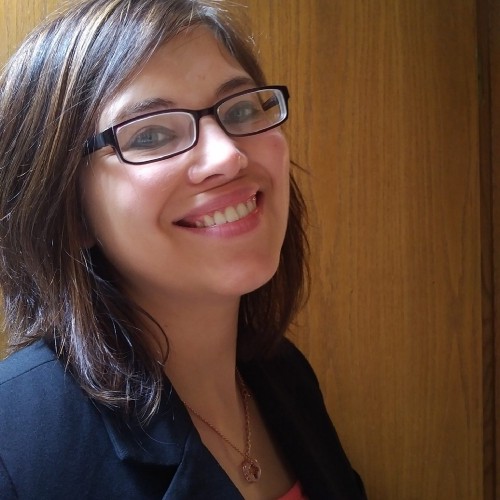Pop quiz, hotshot. If someone asked you to name the three pillars of health, could you? Sure, there’s healthy food (please stop talking about kale) and then there’s exercise (can I get a New Year’s resolution) and, you’ve probably surmised by the title of this article, the third is sleep. Sound sleep, to be exact.
From the Sleep Expert
“There are close to 100 disorders of sleep, but most can be modified and are manageable with the help of sleep specialists,” explains Dr. Clete Kushida of Stanford University Medical Center. “Most sleep disorders are preventable or treatable, yet less than 1/3 of sufferers seek professional help. Sleep problems constitute a global epidemic that threatens health and quality of life for up to 45% of the world’s population.”
Dr. Kushida is also the President of World Sleep Society. If you’ve never heard of the organization, don’t be surprised. It’s a prestigious organization devoted to networking and collaborating sleep specialists and researchers from around the world. (Meaning you must be established in the sleep health community to belong to the society.)

When sleep experts come together from over 72 countries around the world, the public benefits in three main areas: statistics, sleep awareness and international collaborations that further our understanding of sleep and its functions.
Statistics.
Ready to worry about your quality of sleep? You probably should be. Recent studies (many completed by members of the World Sleep Society and/or published in Sleep Medicine, a scientific journal) show:
· Individuals who get an entire night’s sleep without any interruptions experience lower rates of high blood pressure, diabetes, obesity and other chronic illnesses.
· Insomnia affects between 30–45% of the adult population.
· Primary insomnia (insomnia with no underlying condition) affects 25% of our elderly.
· Obstructive sleep apnea has an estimated a prevalence of 17% among men and 9% among women in the United States.
· An average of 1,550 people die each year because of sleep-related traffic accidents in the United States.
All citations and further reading about these statistics are available on www.worldsleepday.org.
Awareness.
Have you ever rolled your eyes at your coworker because they’re complaining (again) about their lack of sleep? Or perhaps you’re the one being negatively affected by lack of sleep? World Sleep Society has a request:
“Be cognizant,” Dr. Liborio Parrino of the University of Parma in Italy states, “that most sleep problems can be managed by changing behaviors around sleep, medical therapy, or cognitive behavioral therapy. We hope patients suffering from sleep complaints, or who suffer from excessive daytime sleepiness, see a physician and, if needed, obtain a consultation in a sleep center. Sleep problems are no less important than other health concerns.” Dr. Parrino is also the 2017 Chair of the World Sleep Day® Committee.
Dr. Parrino continues, “Join participants from over 72 countries around the world in a global call to action about the importance of sleep. Friday, March 17, 2017 is the 10th annual World Sleep Day.” Created and hosted by World Sleep Society, World Sleep Day is an internationally recognized awareness event bringing sleep health professionals and patients together for one important common cause: Sleep.

Collaborations.
Sleep is such a broad topic it can bring people together in amazing ways. Through World Sleep Day, collaboration occurs through volunteers from 72 countries around the globe! (Is your country on the list?)
And during its bi-annual congress on sleep medicine, World Sleep 2017, World Sleep Society will gather thousands of sleep professionals to hear scientific presentations led by 385 speakers from 35 countries (and the list of speakers is still growing as the congress is accepting abstracts until August 2017). Through international collaborations, the understanding of sleep, sleep disorders and sleep medicine is increased worldwide.
Take Action Against Poor Sleep
In conclusion, everyone wants to lessen the chances of chronic illnesses and obesity. But what if you’re not currently able to get an entire night’s sleep without interruptions?
Make an appointment with your doctor “just” to talk about sleep. Work to overcome the stigma that mental and sleep health are less serious than other medical situations. Devoting time to deal with a chronic sleep problem should be a no-brainer.
Connect with others who share your disorder. A variety of patient sites are listed on worldsleepday.org/toolkit/resources. Find your community.
Share your passion for sleep. World Sleep Day is on March 17, 2017. Sign up to spread awareness in your area on worldsleepday.org/become-a-delegate.
Follow the World Sleep Society’s 10 Commandments of Sleep.
10 Commandments of Sleep Hygiene for Adults
To help improve overall sleep and wellness, World Sleep Society (formerly World Association of Sleep Medicine and World Sleep Federation) recommends the following:
1. Establish a regular bedtime and waking time.
2. If you are in the habit of taking siestas, do not exceed 45 minutes of daytime sleep.
3. Avoid excessive alcohol ingestion 4 hours before bedtime, and do not smoke.
4. Avoid caffeine 6 hours before bedtime. This includes coffee, tea and many sodas, as well as chocolate.
5. Avoid heavy, spicy, or sugary foods 4 hours before bedtime. A light snack before bed is acceptable.
6. Exercise regularly, but not right before bed.
7. Use comfortable, inviting bedding.
8. Find a comfortable sleep temperature setting and keep the room well ventilated.
9. Block out all distracting noise and eliminate as much light as possible.
10. Reserve your bed for sleep and sex, avoiding its use for work or general recreation.
References and more information available via www.worldsleepsociety.org. Sweet dreams!
Originally published at medium.com

